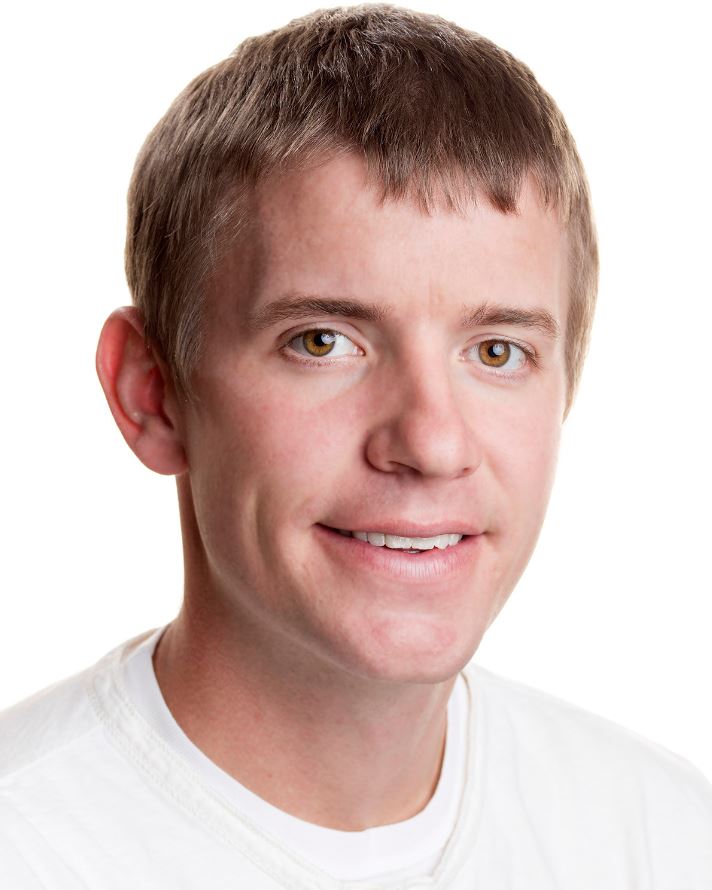Jason Gilbreath, Founder and Owner of Reclaimed Enterprises
Jason Gilbreath was living a full life nearly five years ago. He had been working for First National Bank of Omaha for ten years in leadership roles where he was provided tremendous opportunities to learn and challenge himself. While he and his wife, Jenny, raised their four children, Jason served on boards, coached Little League, and spent as much time as possible with family and friends. Still, Jason dreamed of one day opening his own business.
As a home remodeling project led Jason to build a table with reclaimed wood in his garage, he began brainstorming about starting a business that would provide the same kind of wood to others on a larger scale that would positively impact the community by sourcing sustainable materials, performing value-added processing, and ultimately providing high quality reclaimed products. In July 2014 when a bank reorganization led Jason to contemplate a new beginning, he could no longer ignore his long-held dream of starting his own business. And so, Reclaimed Enterprises was born.
Jason said the best piece of advice he received when starting his business was to “Keep moving, fail fast, and find focus.” Through trial and error and several business model transformations, Jason admits that the process of creating and understanding his brand was painful, stressful, and even discouraging at times. He adds, “We just kept moving to find our place. Now we have expertise, focus, good partners, and a business we are proud of. We are getting closer every day to where we want to be.”
Today, Reclaimed Enterprises is focused on facilitating the use of locally reclaimed materials in design and furniture products to reduce blight and divert waste in Omaha and the surrounding area. His past work has included deconstruction projects for establishments like Habitat for Humanity and leaders at Creighton University who asked for his help promoting the reuse of flooring from the original on-campus gymnasium built in 1915. “Most of our early sales were driven by custom designs and builds,” says Jason. “We are now working to expand our sales channels and footprint while continuing to demonstrate our expertise and consistently provide high quality materials and products.”
His support group includes his wife, Jenny, as well as a group of loyal family, friends, partners, vendors, and customers who Jason says help the company grow and become better every day. His favorite part of owning a business is helping others and winning together. His biggest unforeseen challenges have included warranty and employee issues as well as Mother Nature’s unpredictable disposition. Jason candidly describes a typical day as, “Wake up. Try to take care of yourself and your loved ones a bit. Look at short-term items to complete. Sell. Sell. Sell. Take a call. Fix a problem. Get help. Get something done. Do something different. Take a breath. Think about the future. Get some sleep. Repeat.”
The one thing he can do today that he couldn’t a year ago is see a path to long-term success. “It may change,” he adds, “but it is much clearer than it once was.” He has learned many lessons along the way that include asking for help sooner than he thinks he needs it and finding a thought partner he can trust who is beside him through every battle. Through the pursuit of his passion, Jason has gained the sense of accomplishment that comes with building something from nothing that has value to others. Today he is grateful for everything that has come his way, everything he has worked for, and everything that awaits him in his future.
His advice to others who want to pursue their dreams is practical. “Spend time finding those who value your passion before you pursue it. Those people may include customers, partners, vendors, employees, friends, family, and trusted advisers. If you build it, they won’t always come, so find out where they are and what they want from you. Then go and build that.”
Mother Teresa once said, “I only feel angry when I see waste. When I see people throwing away things we could use.” Through his eyes and a creative vision, Jason saw a way to take the Earth’s waste and transform it into beautiful pieces that help keep our land pristine for future generations. Through his impact, Jason Gilbreath is making a difference, one piece of wood at a time.
For more information on Jason and Reclaimed Enterprises, visit http://www.reclaimedenterprises.com/.
Vicky DeCoster is a Certified Life Coach who specializes in helping her clients move past obstacles, create a plan for happiness, and cross the bridge of transition to find a new and fulfilling direction in life. To read more about her and her practice, visit her at crossthebridgecoaching.com.














